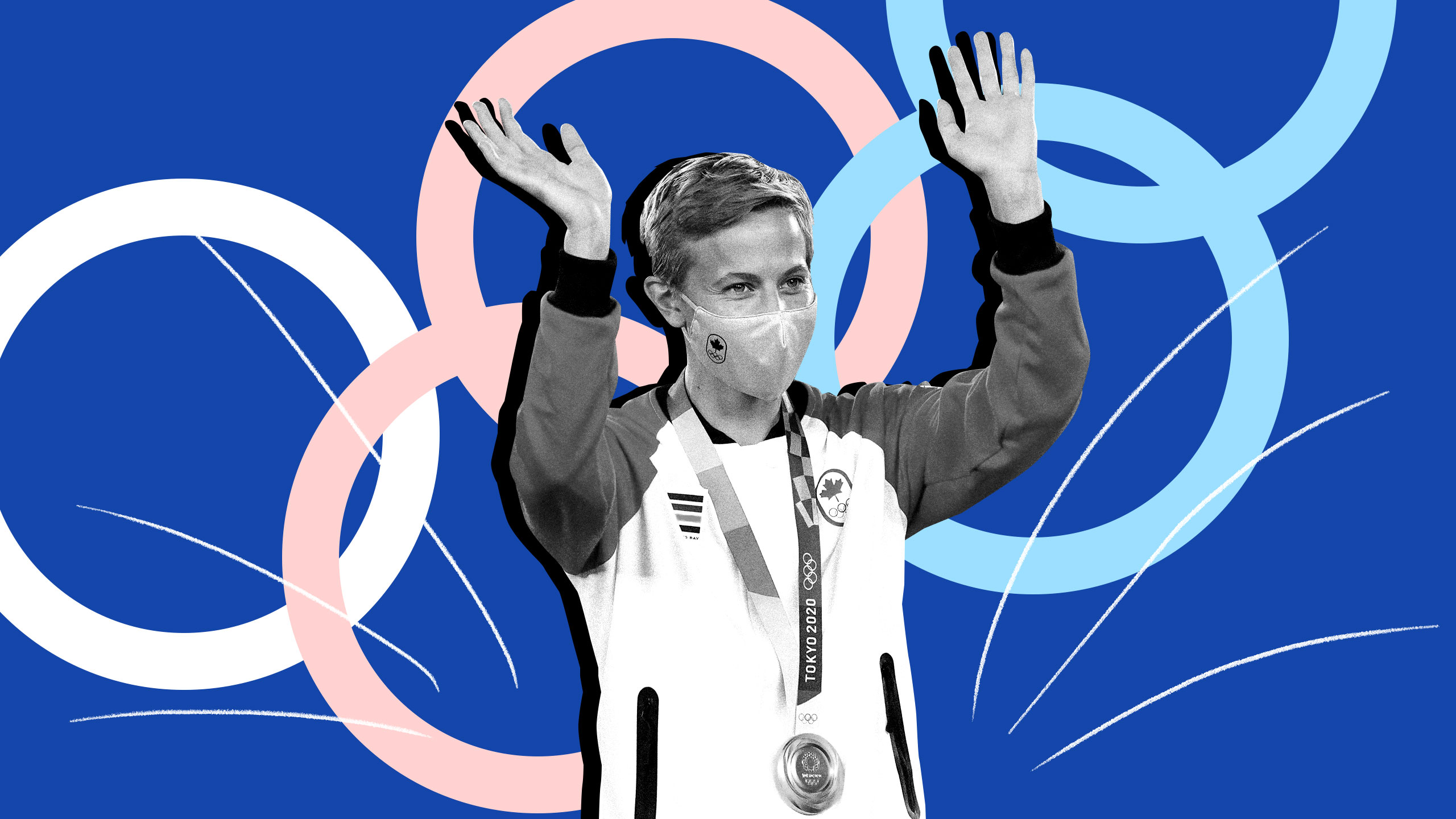The Olympics’ governing body issued new rules this week that will allow more trans athletes to compete in the games, a move celebrated by LGBTQ2S+ advocates.
A six-page document released Tuesday by the International Olympic Committee (IOC) states that trans female athletes will no longer be forced to limit their testosterone levels to be eligible for the Summer and Winter Olympic Games. Trans women should not be barred from competing because of “unverified, alleged or perceived unfair competitive advantage due to their sex variations, physical appearance and/or transgender status,” the policy states.
“This Framework recognises both the need to ensure that everyone… can practise sport in a safe, harassment-free environment that recognises and respects their needs and identities, and the interest of everyone… to participate in fair competitions where no participant has an unfair and disproportionate advantage over the rest,” the IOC said in a statement.
Kaveh Mehrabi, director of the IOC’s athletics department, clarifies that the recommendations are “not legally binding.” He says the policies will be applied by “each federation on a case-by-case basis” and that individual sports will still be allowed to write their own rules regarding trans inclusion.
“What we are offering to all the international federations is our expertise and a dialogue, rather than jumping to a conclusion,” he said in a statement cited by Reuters.
The new guidelines have yet to be enforced and are scheduled to roll out following the 2022 Winter Games in Beijing, according to NBC News. The document was developed following discussions and dialogue with more than 250 athletes and other experts.
“‘This new IOC framework is groundbreaking in the way that it reflects what we know to be true,’ says soccer star Quinn.”
While trans women could still face restrictions from the athletics associations that govern their chosen sport, LGBTQ2S+ athletes and advocates hailed this week’s announcement as a major step forward. Trans women were required to undergo surgery to compete in the Olympics until 2015, when new rules forced them to maintain testosterone levels of under 10 n/mol per litre for 12 months in order to be eligible for the Games.
Canadian soccer star Quinn, who became the first-ever out trans and non-binary athlete to compete in the Olympics earlier this year and the first to win a gold medal, called the updated guidelines for inclusion “groundbreaking.”
“Far too often, sport policy does not reflect the lived experience of marginalized athletes, and that’s especially true when it comes to transgender athletes and athletes with sex variations,” they said in a press release. “This new IOC framework is groundbreaking in the way that it reflects what we know to be true—that athletes like me and my peers participate in sports without any inherent advantage, and that our humanity deserves to be respected.”
Trans advocate Chris Mosier called the framework a “great starting point.”
“The new IOC Framework makes clear that no athlete has an inherent advantage and moves away from eligibility criteria focused on testosterone levels, a practice that caused harmful and abusive practices such as invasive physical examinations and sex testing,” tweeted Mosier, who became the first trans athlete in 2015 to qualify for the Olympics trials in alignment with their lived gender.
The IOC’s move represents continued progress for the Olympics following this year’s COVID-19-delayed games, which saw a record number of LGBTQ2S+ competitors. More than 180 queer and transgender people competed for a medal in Tokyo, including New Zealand weightlifter Laurel Hubbard, who is a trans woman, and American skateboarder Alana Smith, who is non-binary.
In drafting the framework, the IOC claimed that its goal was to ensure that the growing number of out athletes competing in the Olympic Games are not subjected to criteria for inclusion like “invasive physical examinations.” The organization asserted that such examinations are “disrespectful” and “potentially harmful.”
“We really want to make sure that athletes are not pressured or coerced into making a harmful decision about their bodies,” says Magali Martowicz, the IOC’s head of human rights, in a statement cited by the BBC.
But advocates caution that discrimination will not disappear overnight. Caster Semenya, a South-African middle-distance runner who has won two Olympics titles, was banned from competition in the 400 metre, 800 metre and 1,500 metre races due to her naturally elevated testosterone levels. Semenya, who is intersex, appealed to the Swiss Supreme Court and the Court of Arbitration for Sport to overturn the ban and was denied both times.
World Athletics, the track-and-field regulatory body that implemented the policy, confirmed to U.K. newspaper The Guardian that it does not plan to amend its rules.
“As with any set of guidelines, the success of this new framework in ensuring a safe and welcoming environment within the Olympic movement will largely depend on the education and implementation process with national governing bodies, international federations, and other key stakeholders,” Anne Lieberman, the director of policy and programs at LGBTQ2S+ advocacy group Athlete Ally, said in a press release.


 Why you can trust Xtra
Why you can trust Xtra


